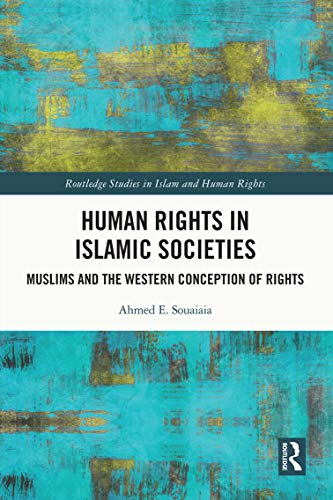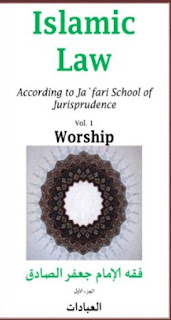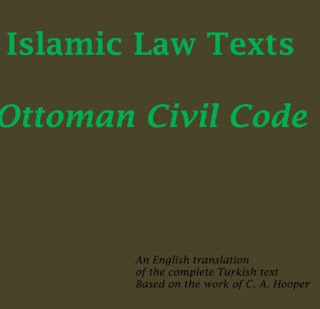The Estate of the Missing Person
A missing Person is one who has been absent and whose news is heard no longer, but neither his death nor his living are known. We have discussed in the book al-Zawaaj wa al-Talaaq the status of his wife and her divorce after four years. Here, we are going to talk about the distribution of his estate, his right to inherit if one of his relatives passes away while he is away. It is obvious that divorcing the wife after four years does not require the distribution of the estate afterward nor not distributing it. Rather the wife will be divorced but the estate will not get divided, since their is no connection between the divorce and death.
Jurists agree that the estate should not be divided untill a period long enough for one to survive has passed [The author of al-Masaalikand al-Jawahir has reported that it was common practice by Imámi Jurists to acertain the death of the missing by Tawaatur, evidence, supported news, or by the expiration of a time period that people like him will not survive before they proceed to divide the estate.] This determination of such a time period is left for the judge. this period varies in faction of time and place. Once the judge rules of his death, those more entitled to inherit him during the ruling, not the deceased ones amongst his relatives before the issuing of the ruling.
If a relative of this missing person passes away during the interrupted absence, his share should be seperated and would be considred like his own wealth until the issue becomes clear or until the judge rule of his death after the period of waiting.
Inheritance of the Burnt, the Drowned, and the buried alive because of a cave-in
Jurists of the Sunni and Shi’i schools of law have mentioned the Inheritance of the Burnt, the Drowned, and the buried alive because of a cave-in and its alike, but they disagreed concerning who shall inherit and who shall not --in situations of confusion-- when it is not possible to know who died first and who died last.
The Jurists of the four decreed that neither of them can inherit the other. Rather the estate of each of them shall be transfered to his living heirs. The heirs of the other deceased shall not share the inheritance with them regardless of the cause of death and confusion to be drowning, caving-in, homocide, fire, or a plague. [al-Mizaan by al-Sha’raani, vol. 2, chapter on inheritance.]
The Independent thinking of the Imámi shi’ahs has left great influence on this issue. The later scholars amongst them have dealt with it in great details. In fact they subdivided it into cases that no one from the earlier and later jurist can imagine. So before they discussed the inheritance of the drowned and the Mahdoomi ‘alayhim in particular, they talked about them and their alike in a way that includes each two incidents that are known to have happened but it is unkown which happened first and which happened last. The effect of one of the incidents taking place before the other is different from its effect if it occured after. Indeed the Jurists amongst the Shi’i Fuqaha’ regard the issue of inheritance of the drowned individuals etc. to be a partial case of a whole case, and to be one part of a general rule that is not specific of one case and not the other. Rathe it includes every two incidents that take place but it becomes hard to determine which of the two incidents took place first. This is irrespective of the incidents --or each of them-- to be classified as a case of contract, a case of inheritance, or a case of homocide etc. Hence, the rule should include that which would be included if two sales contracts were done; one of them was made by the owner himself with Amr dealing with a particualr thing of his belongings, and the second contract was made by his agent to seel the same thing to Zayd, and it was imposible to know which of the contract was made first to declare it as the valid and which was made later to declare it as the void one? In such a way, the effect of each of the two incidents is dependent on firstness of the other, that is supposing that there is no indication in the contract of the occurance of the two incidents at the same moment or the occurance of one before the other. Similarly, the case of the drowned individual and its alike is not an independent case by itself, rather it is one of the particulars of a general rule. For this reason we see Imámi jurists directing their discussion first of all toward the rule itself and toward determining its qualifications. Afterwhich, they discussed the inheritance of the drowned etc. Their ruling whether it is the application of the general rule, or as an exception of the ruling concerning the drowned from the genral rule, is indeed a good approach in analysing the discussion...
The fact that the knowledge of this rule is dependent on the knowledge of two other principles strongly linked to it. Therfore, we shall condence our discussion of these two principles just to an extent permitting the knowing of the intended rule itself although they are as important as the rule. These two principles are: The principle of the non-occurance of the incident whose occurance is doubtful, and the principle of the delay of the incident which occurance is known
The principle of the non-occurance of the incident:
We have a relative outside the homeland. We used to send letters to each other. Then he stopped sending us letters and so did we. After a long time we decided to send him a letter; so we address it to the old address though we had no doubt that he might have died or changed his address. so what is the reason that caused us not to pay attention to doubt in our minds and the possibily of death and change of address? We also believe in the honesty and truthfulness of some person, and we trust him on the most expensive things. then he does some thing leading us to believe that he changed, yet we keep treating him as before. And similar behavior in all correspondences, dealings, and contacts.
The secret in all this is that man is guided by virtue of his nature to consider things unchanged until otherwise proven. So if one knows Zayd to be alive, then doubt occurs suggesting his death, the principle that nature dictates is the continuation of intended life until death is confirmed by one of the means of evidence. This is the meaning of the principle of the Non-Occurance of the Event which occurance has not been proven. It is to this effect that Imám Saadiq says: “Whover is sure about something then doubts it shall not consider doubt to replace the assurity. Indeed the assuruty cannot be replaced Yanqudh) except through assurity. Therefore do not introduce doubt with assurity, and do not mix one with the other, and do not support (arguments) with doubt along with assurity in any case.”
If we know that so-and-so is in pecunary debt, then he claims that he paid it, the principle is that the debt is still in effect until proven otherwise. In other words; we should know of the payment the same we we knew of the debt because what is acquired through knowledge can only be dismessed by knowledge, hence the doubt that takes place after knowledge has no effect. Similarly, if one claims something opposite to the previous status, then he is a claiment (plaitiff?) who must provide evidence supporting his claim. The one who confirms the previous state of things is (Munkir) defendent he can only be asked to take an oath.
The result of this interpretation is that the Principle of the Non-occurance of the event in reality is the consideration of its previous state until proven otherwise.
The Principle of the Delay of One Event
If the judge knows that Khalil was alive on Wednesday, and on Friday he was listed among the dead but he did not know whether he died on Thursday or on Friday and that he does not have any proof determining the specific time of death, how would he rule? Would he rule that Khalil died on Thursday or on Friday?
In this setting, there are three times:
The time of the known living state; that is Wednesday.
The time of knowing of the death; Friday.
The Intermediate time; Thursday, dring which neither death nor life was known.
The principle requires adding such intermediate time with that which preceeded it not that which followed; that is the known of the life. Hence we continue our knowledge of his living until the momemt we know of his death. The result therefore, is that the time of death was delayed until Friday. In this way, every thing was known when it happened, while doubt occured concerning the possibility of it being earlier or later though the event was one not more,
Occurance vs Happenance
Knowing the Occurance of Two Events Without Knowing Which One Happened First:
Now that we have started by mentioning the two princples: The Non-occurance of the Event and the Delay of the One Event, we shall proceed to explain the Effect (Hukm) of the General Rule intended in this discussion which is Knowing the Occurance of two events the effect of one of them is dependent on it being first (in occurance), though we do not know that which happened first; as is the case with the making of two contracts; one by the original owner and the other by his agent, or as is the case in giving birth and offering a sacrifice at the same time as mentioned previously. Or as is the case of the death of two individuals who were to inherit one another where we do not know who died first.
The verdict resulting from this rule differ depending on the knowledge of the judge of the time when each of the events happened, or depending on him not knowing, or him knowing when one of the two events took place. Thus leading to three situations:
The judge knows from the claims of each of the claiments or from the evidence the time period during which each of the two Events took place. In this case, he should rule according to the knowledge he has.
In case the judge does not know which of the two events happened before the other, but he knows the time period during which one of the events happened but not that of the the other event as is the case where he would know that the she-horse was sold on the second day of the month of January but he does not know when the fault (‘ayb) took place: if on the first of the month wherby the buyers have the right to recind the sale, or on the third day whereby there is no return permitted? The rulung in such acase is to prioritize the known date and to delay the unknown date; because the principle is the delay of the event which was mentioned first does not apply to the known date, hence the knowledge prevents from using the principle. As for the event whose time period of occurance is unknown to us, the principle of delay of the event would apply to it because this principle is used in a situation where there is no knowledge available. The end result is then if two events take place, the date of occurance of one event is known while the other is not, the rule in general turms is then to put the known first and the unkown last --be the event of the same kind --like the death of two person or the making of two contracts-- or of different kind.
If the judge does not know the time period of the occurance of both events, nor the time of the occurance of one of them, hence there is no principle permitting him to advance one or the other --given that supposing that one took place first has no basis to cause the reverse to be untrue because both events’ times are unknown. The principle of delay of the event canb only be used if the event was just one event or many events but one of the events’s time of occurance is known that the principle does not apply to, while the other is unknown hence the principle can be applied to it. But if the time of the two events are both unknown with no special characteristic of one over the other, then the principle cannot be used on any of them because of the possible objection. [This narrative can be found in the books of jerusprudence of Imámi shi’ahs (chapter Tanbihat al-Istishaab) and among these books we mention the one known as al-Rasa’il by al-Ansaari, and Taqrirat al-Naa’ini by Seyed al-Khu’i, and Hashiyat al-Rasa’il by al-Ashtayani.]
The Drowned and the Buried Alive because of a Cave-in
There might be a close relationship between two people though one of them may not be entitled to inherit his relative as is the case of two brothers who have children., such a case is out of the scope of our discussion because the inheritance of either of them will go to his children regardless of him dying with his brother at the same moment or one of them died before the other. This is in acordance with what is the books of jerusprudence of all the Islamic schools of law and also according to what has been reported from the French Law.
There is also the case where one of the brothers is entitled to inherit while the other is not such as the case of two brothers one has children and the other does not. This case is also out of our topic because the brother with children will pass his estate to his children while the one who does not have children will have his estate inherited by his relative heirs other than his brother who died with him because of a drowning or because of a fire etc. That is because the condition of inheritance is for life of the heir to be known during the death of the inheritor. Since it is supposed that no knowledge of life of the father of the children during the death of the one who has no children. [See the books Miftaah al-Karama, al-Masaalik, and al-Lam’ah.]
There is the case where both people are entitled to inherit such as the case of a son and his father, two brthoers who have no mother nor mother who neither one of them or none of them have or has children like the case of two spouses one of them can inherit while the other can’t, such a case are part of the heart of the matter discussed here. Imámi shi’ahs put as a condition fror one of them to inherit the other two condition:
The death of each of them must be caused by the same cause. For example the cause can be either drowning or burning for both as is the case where both of them were to be in a building which then falls on them, or both were to be in a boat and they all sink together. If one were to drown while the other burns to death, or both of them die because of a plague or in a war, then they cannot inherit one another. What is reported from the French Law is that the cause of death must be the same for mutual inheritance. Shi’ahs however do not limit the cause to be the drowning or the caving-in, but they say inheritance would take place even if the cause of death is also fire.
The time of death of each of them must be unknown, if the time of death of one of them is known while the time of death of the other is not known, the unkown shall inherit while the known does not.
And here an example: If a building falls on a man and his wife, or both of them drown in a boat and during the rescue they found the man breathing his last breath at five o’clock. After two hours the rescue people find the wife dead and no one was able to determine the time of death whether it was before or during or after the time of death of the husband, therefore we just know the time of death of the man but not that of the woman. The principle of the delay of the event which we discussed leads to the wife --whose time of death is unknown-- inheriting the husband -- whose time of death is known. But he does not inherit from her any thing. If the case was reversed hence the time of death of the wife was known while the time of death of the husband was unknown, then the husband will inherit her, but the wife will not inherit him. In other words, If the time of death of one of the dead perons is known, the one with the unknown time death inherit the one with the known time of death while the one with known time of death does not inherit the person with unknown time of death. As far as the entitlemnt to inheritance of the dead person whose time of death is unknown only and not both of them are entitled to it, there is no difference depending on the causes of death. That is, the ruling is the same whether the cause of death is drowning, fire, caving-in, plague, or war.
If the time of death of both persons were unkown as is the case where the body of the wife and that of the husband were found with no palse, in such a case they shall inherit one another. This distinction the case where the time of the death of one person is known on one side and the ignorance of the time of death of both persons on the other side was not imported from any foreign law. I did not find it in the books of early and later Sunni jurists either. It was only mentioned in the jerusprudence works of the later Shi’i jurists but not even the early shi’i jurists.
In conclusion, Shi’is limit the entitlment of inheritance in the case where the cause of death is the same for both persons, and in the case where the time of death of one person is unknown. Therfore if both of them die natural death, or becaus eof a fire, war, or a plagueetc. then they shall not inherit one another, rather the estate of each of them shall go to the respective living heirs, without anyone of the dead inheriting from the other. If the time of death of one of them is known and not the other’s time of death, then the one with the unkown time will inherit the one with the known time of death, but the one with the known time of death does not inherit from the one with the unkown time of death.
Procedure of Inheriting one another
The procedure is to suppose that the husband died beofre the wife, hence her share from his estate is to be set aside to be divided among her heirs along with her own estate that she left. Then it will be supposed that the husband died after the wife, his share from her estate shall be added to his proper estate then divided amongst his heirs. Neither of them though should inherit from the money that was inherited from him by the other side; for example if the wufe had 100 while the husband had 1000, then the wife inherits from the 1000 only while the husband inherits from the 100 only. that is because if one of them was to inherit from the wealth inherited by the other from him, then that would lead to a person inheriting from his own wealth aftewr his death. It is impossible for a person to inherit something someone else inherited from him.
The conclusion if two persons die because of a drowning or a caving-in, and of there was between them a relationship enabling them to inherit one another, but if was not clearly known who died first --that is the time of death of one of them is not known-- then they shall inherit one another from the Tilad estate and not its Taarif [Tilaad of the estate is what was owned by the deceased during his lifetime. The Taarif of the estate is what was inherited from a person who died with him.] according to Imámís only.




0 comments:
Post a Comment